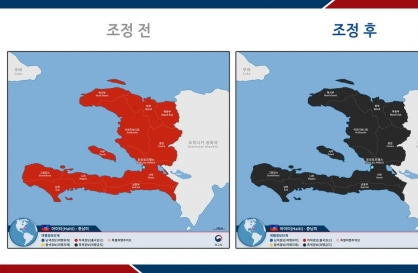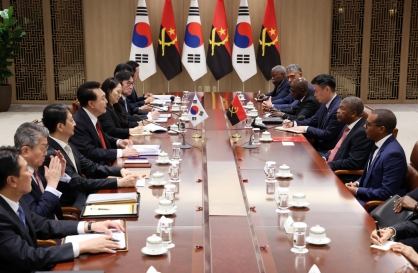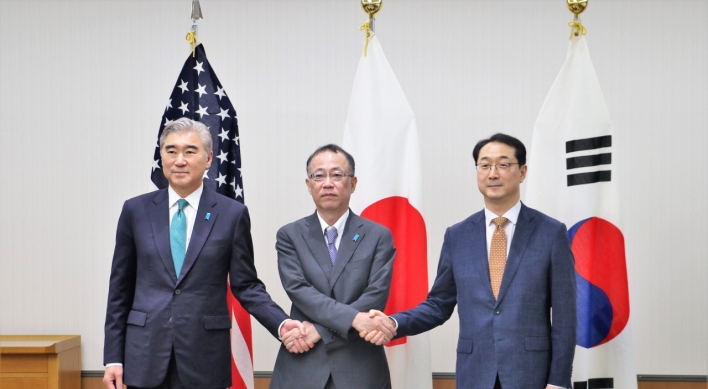The following is the second in a series of articles on the April 11 general elections. ― Ed.
Um Tae-jun didn’t bother to vote in several past elections. But this time, the 29-year-old engineer says that he definitely will.
The reason for his change: a political podcast that he has been listening to for the past few months.
Um, like many other Koreans in their 20s, is an ardent fan of the anti-President Lee Myung-bak podcast “Naneun Ggomsuda (I’m a petty-minded creep).”
“Like Kim Ou-joon said, I now believe that many of the problems I face in life stem from bad politics,” he said, paraphrasing one of the panelists on the political satire show.
“I want politicians to really work on issues that matter most to me and others my age,” he said.
Um Tae-jun didn’t bother to vote in several past elections. But this time, the 29-year-old engineer says that he definitely will.
The reason for his change: a political podcast that he has been listening to for the past few months.
Um, like many other Koreans in their 20s, is an ardent fan of the anti-President Lee Myung-bak podcast “Naneun Ggomsuda (I’m a petty-minded creep).”
“Like Kim Ou-joon said, I now believe that many of the problems I face in life stem from bad politics,” he said, paraphrasing one of the panelists on the political satire show.
“I want politicians to really work on issues that matter most to me and others my age,” he said.

Politically awakened, younger generations are emerging as a key electorate in the April 11 election, political analysts say. Some even believe that this group of the electorate, which had been neglected by political parties for its tendency to have a low turnout in polls, may prove to be a deciding factor as the country’s two main political parties are running a neck-and-neck race over control of the next parliament.
“Twenty-somethings are awakening politically, realizing the need for a change in politics to have their problems fixed,” said professor Park Myong-rim of Yonsei University in Seoul.
This demographic is particularly dissatisfied with established politics, which have failed to address their key concerns ― a bleak job market, high college tuition fees and a ever-widening income gap between rich and poor, he said.
The trend is likely to result in a high voter turnout.
Usually, young voters are considered less likely to vote and this perception has proved to be right in many past elections.
In the 2008 parliamentary election, less than 29 percent of voters in their 20s turned out, compared to the all-age average of 46.1 percent. The youth turnout went up to nearly 40 percent in the local elections held in 2010.
According to a survey by the National Election Commission, 36.1 percent of voters under 30 said they will definitely vote, up nearly 10 percentage points from a poll conducted four years ago ahead of the previous general election.
A higher turnout among voters in their 20s may help the opposition parties which have united to clench legislative control from the ruling Saenuri Party, other analysts said.
Park Won-ho, a professor of politics at Seoul National University who analyzed the results of three previous nationwide elections, says a 1 percentage point rise in youth turnout led to as much as a 1.25 percentage point drop in votes for ruling party candidates.
Young voters favoring the opposition candidate was evidenced in the Seoul mayoral by-election last October. Citizens in their 20s gave overwhelming support to Park Won-soon, an independent candidate backed by the main opposition Democratic Party, the precursor to the Democratic United Party.
They preferred Park over his rival from the ruling Saenuri Party by 69.3 percent to 30.1 percent.
Also indicative of the younger generation’s growing interest in politics, more people in their 20s are knocking on the parliamentary door.
In one of the most high-profile races, 27-year-old unemployed Son Su-jo is challenging liberal presidential contender Moon Jae-in for the ruling Saenuri Party.
Four of the main opposition DUP’s proportional representative candidates are in their 20s and 30s.
A new political party, aiming to represent this particular segment of the electorate, launched last month and fielded its candidates in three constituencies in Seoul.
The Youth Party, formerly known as the Youth Hope Plan, started off with just 600 members, but now boasts a membership of more than 8,000, it said.
By Lee Sun-young (milaya@heraldcorp.com)
-
Articles by Korea Herald



















